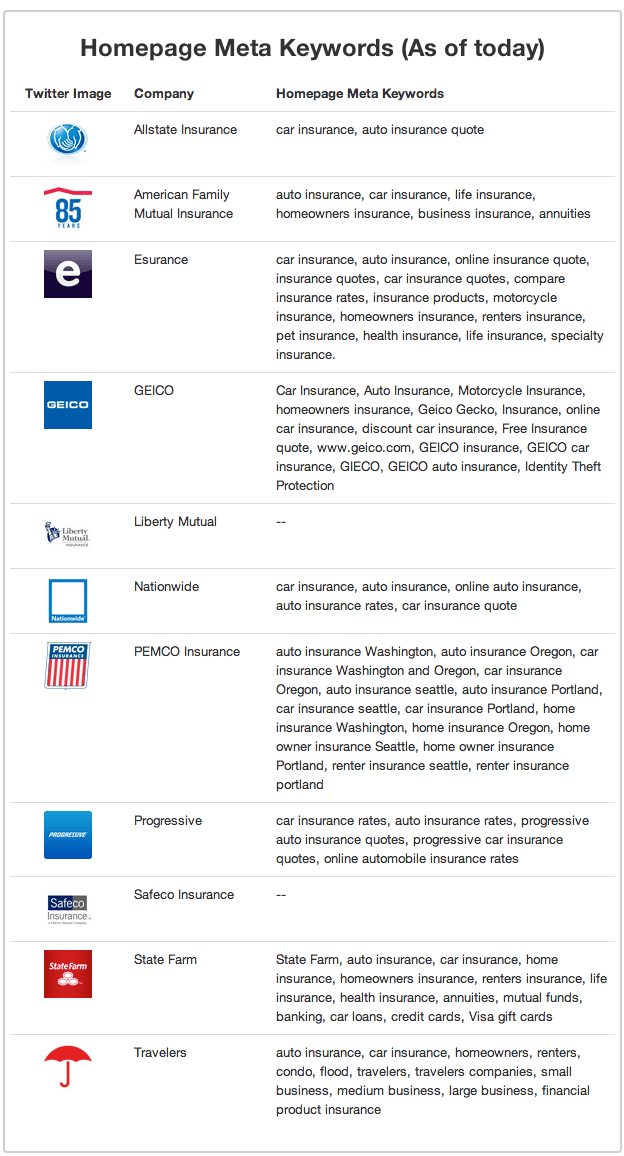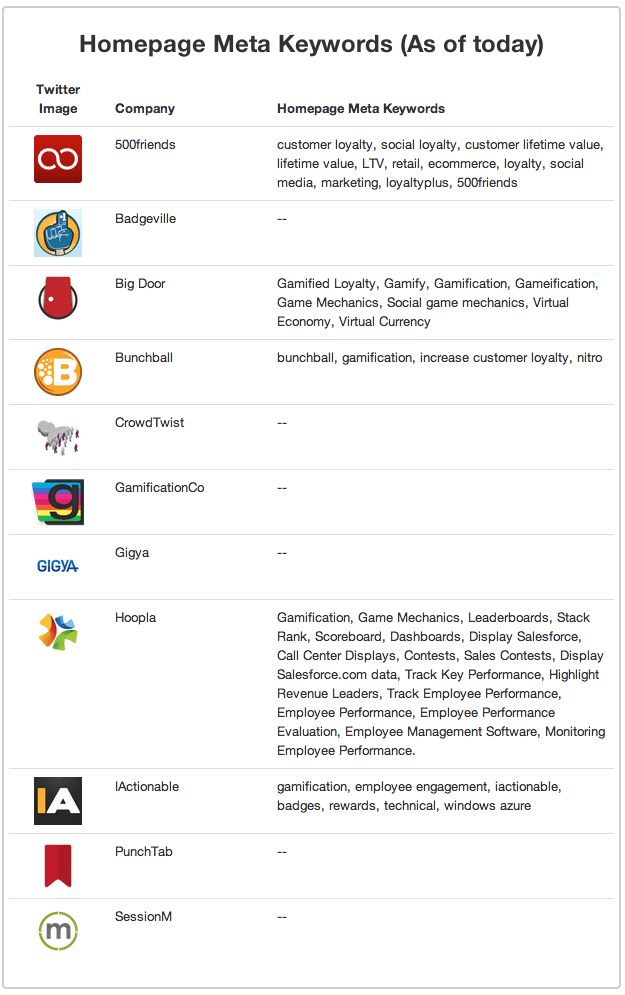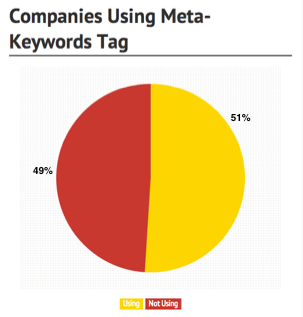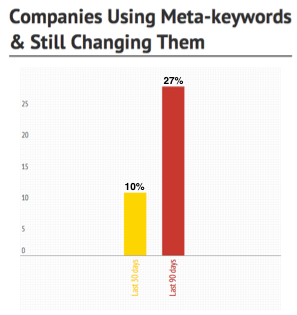Search engines stopped considering the contents of your meta keywords tag at least 4 years ago (and probably much longer than that). If you are spending time populating your meta keywords tag, you are wasting time (at best) and enunciating your meta keyword strategy to the interwebs (much worse).
In this modern time of SEO consultants and marketing automation tools, you might imagine that there are relatively few people who still follow the now 10-or-more-year-old advice to populate the meta-keywords tag in their web pages, but a quick look into our data reveals that more than 50% of companies populate their meta keywords.
What, you’re still updating your meta keywords and need the quick fix? Go remove your website meta-keywords tag from your site now! Then come back here and read about how to gain insights about your less savvy competitors.
Google and Bing don’t use meta keywords as an input to their ranking algorithms
Few, if any, SEO experts advocate the use of meta keywords for SEO purposes. Matt Cutts (from Google) explains Google’s take on the matter, and many others point out that Bing uses it only as a negative signal that decreases your page relevance. If that weren’t enough evidence for you, go read the consensus of opinion on SEOmoz’s community forum.
In addition to pointing out the lack of relevance to search, most bloggers on the topic go one step further and actively advocate that research your competitors’ sites to gain insight into their keyword strategy. I couldn’t agree more, so let’s look at how to quickly gain that insight.
Explore your competitors’ meta-keywords tag for insights into their keyword strategy
Despite my rant about meta-keywords being a waste of time, researching your competitors’ use of them can be a quick and fruitful exercise. A few minutes of time invested may provide valuable inspiration for keywords you may want to optimize for during your own SEO or PPC activities, or clue you in to shifts your competitors may be planning.
To quickly examine meta tags as you browse the web, find one of the many browser add-ons that surface many of the non-visible details the page you’re viewing contains. My favorite add-on at the moment is the SEOmoz SEO Toolbar, and it is definitely worth checking out.
For longer term monitoring or for a broader survey of many websites simultaneously, you can use a tool such as Rival IQ (our app) to assemble your competitors and track a variety of information including meta-keywords tags. As an example, I used Rival IQ to review the meta keywords for an insurance industry competitive profile I am monitoring. This is a mature industry with large marketing and IT budgets, and nearly all of the companies had meta-keywords but have not been actively modifying them. Have a look:
Another competitive landscape I reviewed while writing this post was the gamification market, a technology-driven space where you might expect complete adherence to modern SEO best practices. Yet, even in this tech-heavy marketplace, 5 out of 11 companies still populate their meta-keywords tag, and at least two of them have spent time changing them during the last 3 months. And no, I’m not going to say who! You could go sign up for Rival IQ and figure it out though ;-). Again, have a look at who’s doing what:
Believe it: 50% of companies still populate their meta-keywords tag
At Rival IQ, our systems peruse thousands of websites every day on behalf of our customers. Among the things we examine are meta-tag contents (including keywords) and how they change over time. Looking at some recent data from our system, I realized that more than half of the companies we monitor still populate their meta-keywords tag (surprising, yes!). You could potentially write off many of these instances as yet-to-be-discarded relics of a different time. But seeing indications that, at least for many companies, meta-keyword editing is a commonplace activity makes me cringe. Not only have you wasted your time, but you’ve given your competitors an insight as to your awareness of best practices (and your thoughts on important keywords, too).
Perhaps a more shocking statistic is that 27% of companies with a keywords tag made changes in the last 90 days! In other words, that’s about 1 in 8 companies we track. Clearly, there is still plenty of room for improvement in the world of digital and online marketing.
Now, to repeat my earlier call: if you still have a populated meta-keyword tag, go make it so that you don’t!
Think I’ve got it wrong? Do you still use a meta-keywords tag at your company? Tell me why? I’d love to hear from you.




